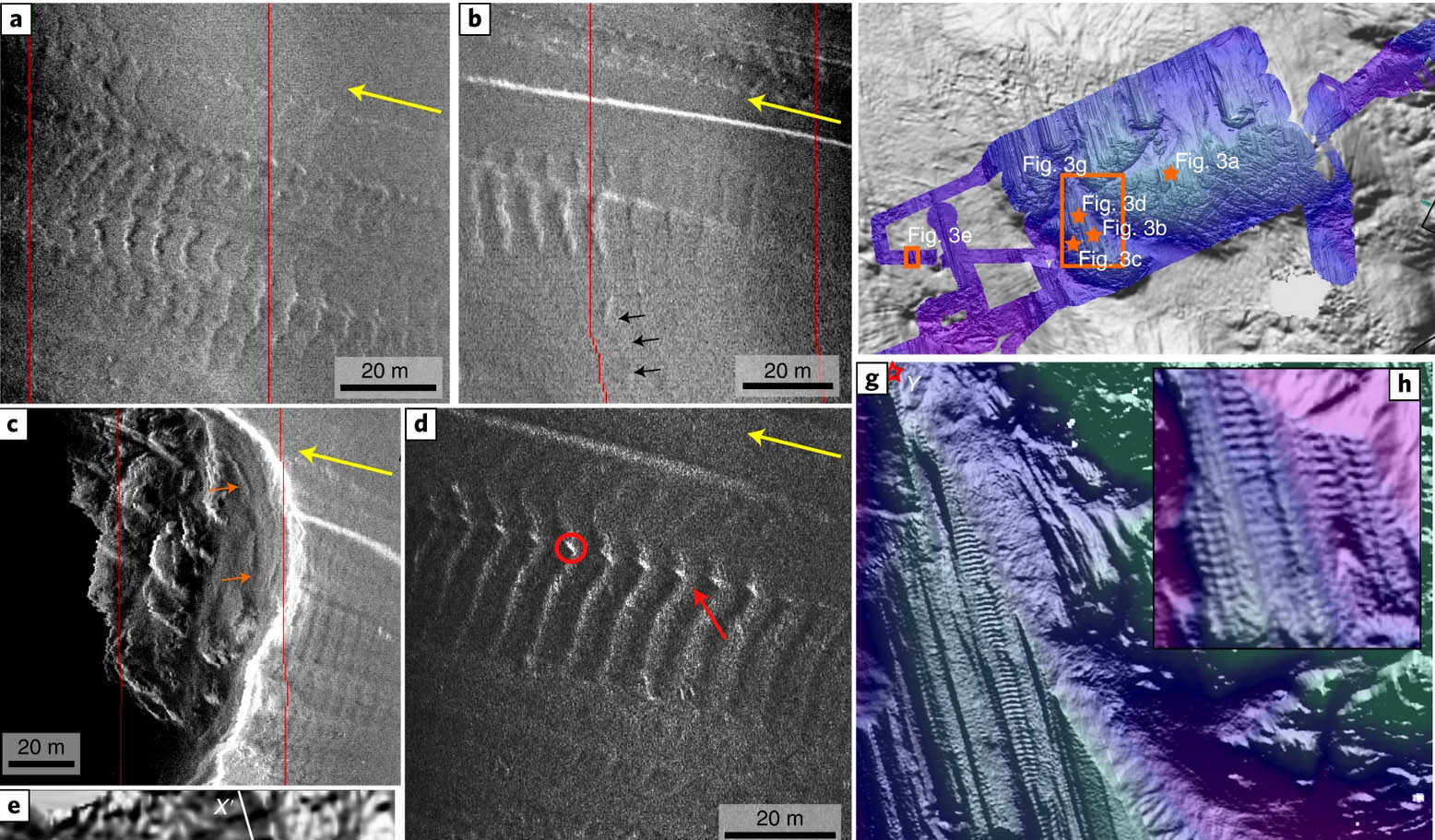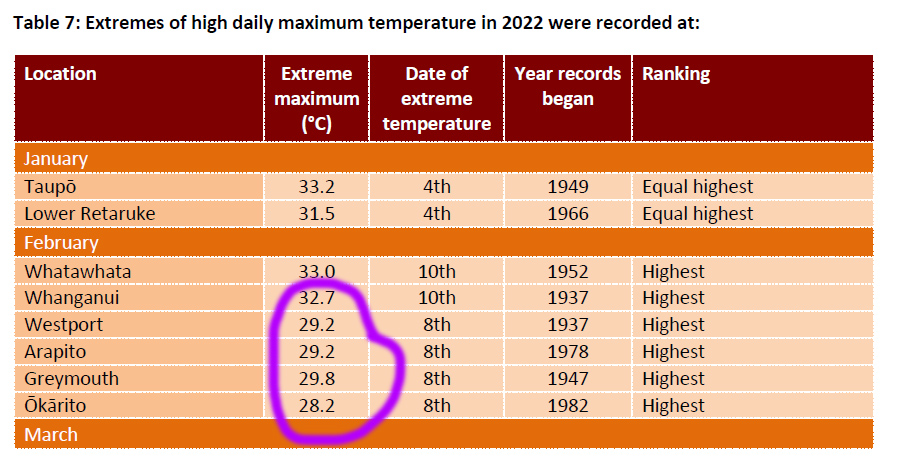RICHARD PROSSER
A burning question
A millennium dawns, and a power and environmental crisis beckons. Or does it? The globe is warming, oil is running out, and it’s all our fault, apparently. Mankind’s fondness for fossil fuels spells doom for us all, or so we are told. The earth will warm, the seas will rise, crops will fail, coastal lowlands will be inundated, polar bears will die out, and yada yada yada. This is partly true. The climate is changing. Temperatures worldwide are increasing. It is happening; it just isn’t happening for the reasons that that Greenies tell us it is.
I was raised as an environmentalist. I love the earth. Like most farmers, and most hunters, I’m a true Green, and proud of it. But unlike the ultra-far-red-leftists of the party which bears the same name, Greenies like me prefer to base our opinions on fact, rather than on dogma, ideology, and bad science.
We are in good company. British botanist, Professor David Bellamy, has published a paper outlining how it is that atmospheric carbon dioxide levels are increasing because of global warming, and not, as the flat-earth zealots of the Kyoto Cult claim, the other way round. His findings are based on thirteen thousand years’ worth of archaeological data since the last ice age.
Bellamy refers to the Milankovitch cycles, which measure changes in the earth’s climate brought about by variations in the tilt of our planet’s axis and her orbit around the sun. These changes occur gradually over long periods – up to 100,000 years – and their effects, along with those of the known 300-year and 22-year weather cycles generated by sunspot activity, have been inscribed not only in the fossil record, but also in human history. 1000 years ago, the Vikings grazed cattle on the lush green pastures of what are now the frozen icy wastes of Greenland, and Britain had a wine industry. 750 years later, the climate had cooled to such a degree that people could ice-skate on the River Thames in London.
Bellamy also quotes from the Oregon Institute of Science and Medicine, whose petition against the Kyoto Protocol has been signed by some 18,000 scientists worldwide. Its central claim is simple; “Predictions of harmful climatic effects due to future increases in minor greenhouse gasses like carbon dioxide are in error, and do not conform to experimental knowledge.”
Kyoto proponents would do well to acquaint themselves with a little of that experimental knowledge. We are told that melting ice caps will cause sea levels to rise. This is patently untrue, and easily demonstrated. Fill a glass to about three-quarters with water. Drop in a few ice cubes. Mark the water level with a felt-tipped pen.
In an hour or so, when the ice has melted, come back and check the level. You will discover that it hasn’t changed.The science behind this is very, very, third-form simple. Ice is less dense than water, which is why it floats. Because it floats, it displaces water, pushing the water level up. As the ice melts, the displacing ice is replaced by water, of increasing density, at lower volume, meaning that the overall level remains the same. Melting ice caps will have no effect at all on sea levels.
For the record, the Northern ice cap has no land mass under it. It is all floating sea ice. Most of the icebergs released by the Antarctic, are also sea ice, from such reservoirs as the Ross Ice Shelf. Such land-based ice as is released, by retreating glaciers and continental ice masses, is utterly insignificant relative to the volume of the oceans. It doesn’t take a rocket scientist to sit down with a map of the world and a pocket calculator to work that one out.
Sea levels will, however, rise with increasing global temperatures. This is because a warming of the oceans causes their waters to expand. Low-lying countries are at risk, unfortunately, and this is a great tragedy of our time; but a greater tragedy still, is the unfettered willingness with which so many otherwise ostensibly intelligent people leap blindly onto a popular bandwagon founded on theory and science which is, plainly and simply, wrong. The burning of fossil fuels by Western nations is not causing the rise in global temperatures, and their cessation in so doing will not halt it, nor will it save those nations which are at risk.
We are also led to believe that methane emissions from New Zealand’s three-odd million cows are irrevocably harming the atmosphere, and that we must purchase “carbon credits” from some other country in order to overcome this.
The authors of this particular chapter of the Kyoto fantasy have obviously not thought far enough outside the box to give consideration to the effects which must, by their logic, have been caused by the up-to-75 million bison which roamed North America until the 1830s, or the huge African wildlife herds that existed up until modern human predation. One would presume, in keeping with their argument, that the globe should now be in credit from that period.
The fantasists also appear to ignore the fact that the atmospheres of the northern and southern hemispheres mix only at the equator, and even then, by only a minute percentage every year. Even if the “carbon credit” theory were anything other than simplistic misinformation, several centuries would have to pass before the effects of carbon emissions “saved” in one hemisphere, had any measurable effect on those “spent” in the other.
And as an aside, forests are not the “carbon sinks” which the Protocolers claim them to be; living plants emit almost as much CO2 as they take in. The only effective way to turn a forest into a carbon sink, is to cut it down for timber, or mill it into paper.
As I write this, on the evening of Wednesday 16th February 2005, the Government of New Zealand is committing the latest in its long litany of ill-informed, incompetent, or deliberate and ideologically-driven blunders. It is ratifying the Kyoto Protocol.
Even as it does, professional activists, from the internationally-franchised business Greenpeace, are occupying the site of this New Zealand Government’s single most intelligent and sensible action – the commissioning of the mothballed Marsden-B power station, as a coal-fired electricity generating plant.
They are doing so because they, and the Greens, and any number of other highly-opinionated yet poorly informed protesters, are opposed to the use of coal as a fuel for electricity generation. It is their claim that the burning of coal, or any other fossil fuel for that matter, in spite of a wealth of informed scientific opinion to the contrary, is a contributing factor to the current cycle of natural climate change. I do beg to differ. Mankind, for all his faults, is just not that significant. We are not affecting our planet’s climate. It is changing all by itself, without our help, as it has done since time immemorial, not just in the couple of hundred years since modern record-keeping began.
A single volcanic eruption on the scale of Taupo, or Krakatoa, or Mount St Helens, or Pinatubo, releases more particulate and oxidative matter into the atmosphere, than has been created by the whole of mankind since the discovery of fire, modern wars included. Sorry, Kyotoers, but once again, this is verifiable fact.
Ice ages come and go. After them, indeed between them, the climate warms again. Greenhouse fanatics choose to ignore this natural phenomenon, because they have no pseudo-scientific way of explaining it.
Though generally short on alternative solutions, in this case, as an alternative to coal, the protestors make some timid noises in favour of natural gas. This is a curious position. The exhaust products from the burning of natural gas (primarily a mix of propane and butane, with some methane, a little ethane, a smattering of pentane, and a dash of carbon monoxide), are mostly water vapour (the single most effective greenhouse gas, which also sustains life on our planet, and staves off ice-ages), and carbon dioxide.
Strangely enough, the exhaust products from a modern coal-fired thermal power station are also, primarily, water vapour and carbon dioxide.
The reality of black gold today, is a long way from the grim memory of its industrial past. Fly ash is caught by filters. Sulphur dioxide is neutralised with lime, and the resultant calcium sulphate is extracted to be used as a fertiliser. After these processes, there is very little left.
Their other preferred alternatives appear to be the continued destruction and flooding of South Island rivers and wilderlands, and the proliferation of ugly, noise-polluting wind farms – which Europe, incidentally, having had much experience of, is now in the process of dismantling.
Nobody wants pollution. There are very good reasons for mankind to pursue an alternative to oil as a source for transport fuels. But just for the record, oil is never going to run out. Contrary to popular myth, it isn’t fermented dinosaur juice. Oil is one of the products which the earth produces all the time, albeit slowly. When we tap into an oil strike, some of the oil comes out under its own pressure, and the next fraction is displaced with water, either sea water or fresh water, depending on whether the find is on land or offshore.
But oil isn’t so much pumped, as collected. Oil companies prefer not to spend unnecessary money on extracting this free and plentiful product; when the easy stuff runs out, the well is capped, declared “dry”, and the company moves on to the next find. At that stage, the reservoir usually still contains around 80% of its original oil.
Oil is handy and versatile stuff, providing us with plastics, artificial fibres, and a host of other products, from cosmetics, to agrichemicals, to road-building materials.
That said, it isn’t the cleanest thing we can put into our fuel tanks; but neither is it, nor coal, the cause of global warming.
Worldwide, a commercially-driven and media supported campaign of mass hysteria over climate change is using fraudulent science and bogus evidence to convince foolish Greenies and ignorant politicians to spend vast amounts of money on solving a problem which doesn’t exist. It is reminiscent of those other great bogeyman stories, about Y2K, SARS, Nuclear War, werewolves, vampires, and Asian Bird Flu.
I end as I began, by quoting Professor Bellamy: “The link between the burning of fossil fuels and global warming is a myth. It is time the world’s leaders, their scientific advisers and many environmental pressure groups woke up to the fact.”
(With acknowledgement to David Bellamy, and special thanks to Allen Cookson for some additional information.)







